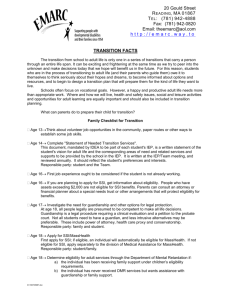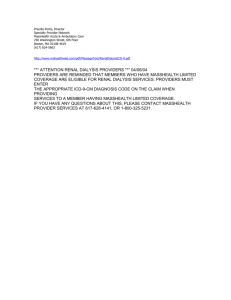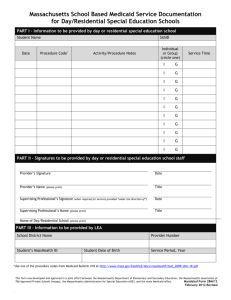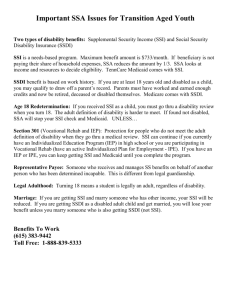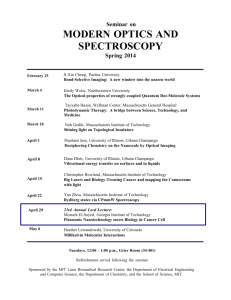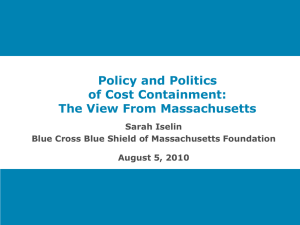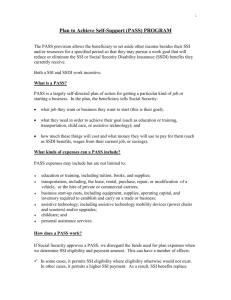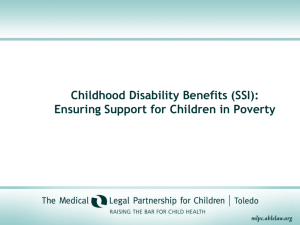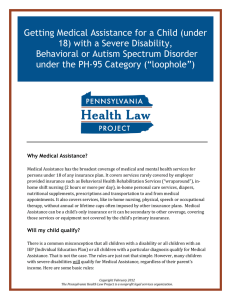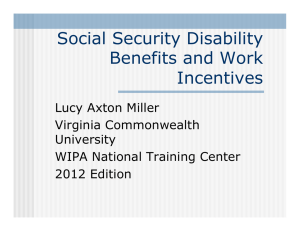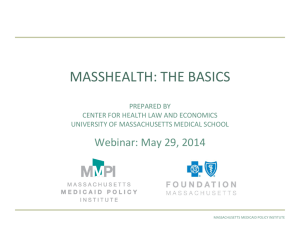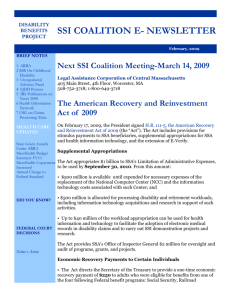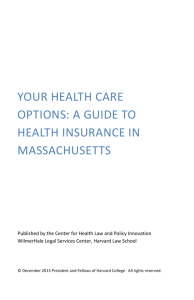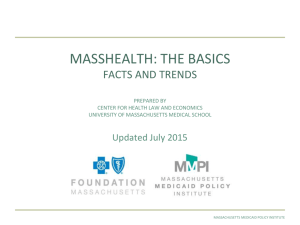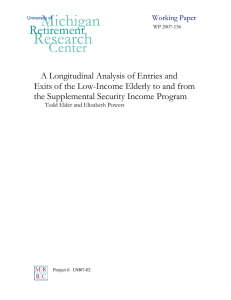A word about SSI – Supplemental Security Income – federal
advertisement
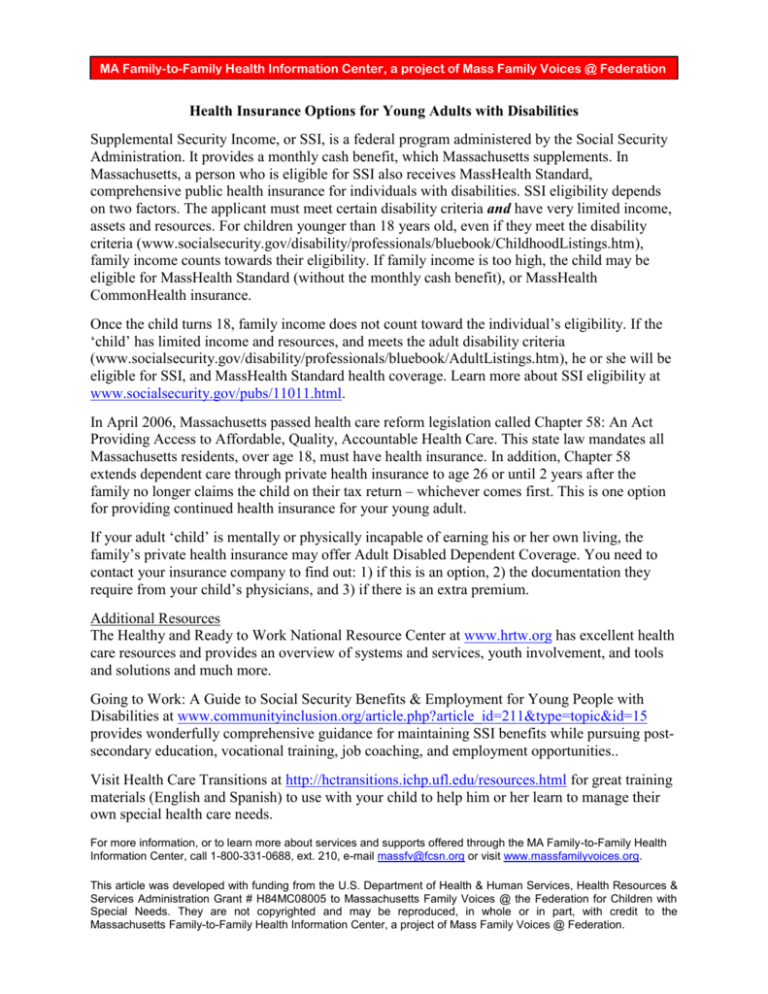
MA Family-to-Family Health Information Center, a project of Mass Family Voices @ Federation Health Insurance Options for Young Adults with Disabilities Supplemental Security Income, or SSI, is a federal program administered by the Social Security Administration. It provides a monthly cash benefit, which Massachusetts supplements. In Massachusetts, a person who is eligible for SSI also receives MassHealth Standard, comprehensive public health insurance for individuals with disabilities. SSI eligibility depends on two factors. The applicant must meet certain disability criteria and have very limited income, assets and resources. For children younger than 18 years old, even if they meet the disability criteria (www.socialsecurity.gov/disability/professionals/bluebook/ChildhoodListings.htm), family income counts towards their eligibility. If family income is too high, the child may be eligible for MassHealth Standard (without the monthly cash benefit), or MassHealth CommonHealth insurance. Once the child turns 18, family income does not count toward the individual’s eligibility. If the ‘child’ has limited income and resources, and meets the adult disability criteria (www.socialsecurity.gov/disability/professionals/bluebook/AdultListings.htm), he or she will be eligible for SSI, and MassHealth Standard health coverage. Learn more about SSI eligibility at www.socialsecurity.gov/pubs/11011.html. In April 2006, Massachusetts passed health care reform legislation called Chapter 58: An Act Providing Access to Affordable, Quality, Accountable Health Care. This state law mandates all Massachusetts residents, over age 18, must have health insurance. In addition, Chapter 58 extends dependent care through private health insurance to age 26 or until 2 years after the family no longer claims the child on their tax return – whichever comes first. This is one option for providing continued health insurance for your young adult. If your adult ‘child’ is mentally or physically incapable of earning his or her own living, the family’s private health insurance may offer Adult Disabled Dependent Coverage. You need to contact your insurance company to find out: 1) if this is an option, 2) the documentation they require from your child’s physicians, and 3) if there is an extra premium. Additional Resources The Healthy and Ready to Work National Resource Center at www.hrtw.org has excellent health care resources and provides an overview of systems and services, youth involvement, and tools and solutions and much more. Going to Work: A Guide to Social Security Benefits & Employment for Young People with Disabilities at www.communityinclusion.org/article.php?article_id=211&type=topic&id=15 provides wonderfully comprehensive guidance for maintaining SSI benefits while pursuing postsecondary education, vocational training, job coaching, and employment opportunities.. Visit Health Care Transitions at http://hctransitions.ichp.ufl.edu/resources.html for great training materials (English and Spanish) to use with your child to help him or her learn to manage their own special health care needs. For more information, or to learn more about services and supports offered through the MA Family-to-Family Health Information Center, call 1-800-331-0688, ext. 210, e-mail massfv@fcsn.org or visit www.massfamilyvoices.org. This article was developed with funding from the U.S. Department of Health & Human Services, Health Resources & Services Administration Grant # H84MC08005 to Massachusetts Family Voices @ the Federation for Children with Special Needs. They are not copyrighted and may be reproduced, in whole or in part, with credit to the Massachusetts Family-to-Family Health Information Center, a project of Mass Family Voices @ Federation.
